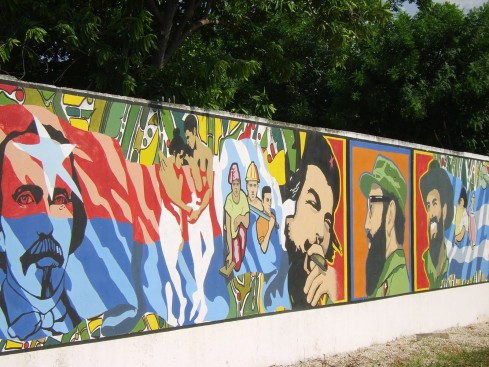Cross-posted from James Bloodworth at Obliged to Offend

In the early 1990s the Cuban economy was in trouble. The collapse of the Soviet Union saw a 35% decline in the country’s GDP almost overnight. Shops were increasingly bare and food was scarce. Stories abounded of cats and dogs being cooked and eaten in central Havana out of sheer desperation. Rolling blackouts became the norm and many factories were closed through want of raw materials. Onlookers spoke of the inevitable demise of Fidel Castro and his communist regime, not least the Miami exiles, many of whom were salivating at the prospect of their nemesis finally being swept from power by a popular uprising.
At the time of the last Communist Party congress, some 14 years ago, the Castro regime grudgingly introduced a series of market reforms in an attempt to stave-off economic collapse. New hotels were built by Canadian and European companies and Cubans were granted licenses to rent rooms to foreign tourists. People were permitted to turn their houses into paladares (small private restaurants) catering to the growing number of foreign visitors frequenting the island. The reforms were modest, but gave the country a degree of economic breathing space the Stalinist system simply could not provide.
Reform however brought with it its own problems.
One of the more impressive social achievements of the Revolution was to turn what was once described as the “whorehouse of the Americas” into a country where there was very little in the way of open prostitution. The re-introduction of tourism in the 1990s however saw a re-emergence of this darker side of Cuban history on an enormous scale. According to Michael Clancy, author of The Globalisation of Sex Tourism and Cuba, the Cuban government’s attitude towards Western tourists who travelled to the island in search of cheap and exotic prostitutes was to “send a message to the global sex tourist community that [the country] was open for business”.
Strolling along the Malecon, Havana’s historic sea wall, one cannot help but be alarmed by the frequency with which one sees young Cuban girls, often no older than 14 or 15, fraternising with European and Canadian tourists of a certain age.
Corruption also became endemic during the “special period” – the name given to the period of economic hardship during peacetime. Anyone who has visited Havana will tell you that this is a city where everyone is on the take. The legal economy barely functions; improvisation is how people survive. “No es facil” Cubans will tell you. It’s not easy.
The modest economic opening did lead to an improvement in the situation as the country entered the new millennium. Towards the end of the decade, however, the global economic crisis and the damage wrought by hurricanes Gustav and Ike contributed to a worsening economic picture once more. Wikileaks cables sent by the U.S. Interests Section in Havana in February 2009, detailing discussions between some of Cuba’s main trading partners, including China, Spain, Canada, Brazil and Italy, as well as France and Japan, said diplomats agreed that “the [Cuban] financial situation could become fatal within 2-3 years”, with the country becoming “insolvent as early as 2011”.
On the back of last week’s party congress, the first since the mid-1990s, the government of Raul Castro is planning to lay-off around 500,000 state employees and open up the economy further to private enterprise. His government also plans to make cuts to the social safety net, eventually eliminating the ration card and large food subsidies.
From some quarters Raul is said to be an admirer of the Chinese model; from others these reforms are simply a ruse, done out of sheer economic necessity rather than due to any meaningful ideological shift. This time around however, even the aging Comandante Fidel admits that the Cuban model “no longer works” and that the system needs changing.
If it has become clear to even this cold-war dinosaur that Cuba cannot continue on its current trajectory then perhaps things really are changing, the real question being whether economic transformation will bring with it political change, or, like the Chinese government, the Cuban regime will attempt to keep a lid on political reform while opening up the market. Cuban labour rights are poor as things stand. There are no independent unions; and aside from the mention of co-operatives in some areas of the economy, there is little talk by the regime of an increased role for workers in the running of their enterprises – even less about the right of workers to organise independently of the state. Nor are there any plans to open up the media, its printed form being most accurately described by the late Argentinean editor and dissident Jacobo Timerman as “a degradation of the act of reading”.
This is not to say that all the news is bad however. Cubans would probably quite like McDonald’s in Havana. Plastic food is, after all, better than no food.